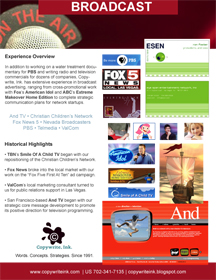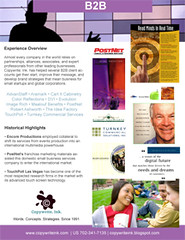After watching NBC's Behind The Camera: The Unauthorized Story of Diff'rent Strokes yesterday and then reading a review on
TV Squad, which points out that the actors never seemed to be held accountable for their failures as young adults, I thought I'd offer up a personal perspective because, frankly, I think TV Squad is wrong.
But then again, I saw a different side of Dana Plato, one that did not make the show.
Sure, I'll agree that the movie drifted far too often into melodrama, but I'm not convinced the view was all that unbalanced. While I cannot speak for Todd Bridges or Gary Coleman, because I never met them, I did meet and speak with Dana for several hours in March 1992, shortly after her arrest for forging prescriptions for Valium in Las Vegas.
I was given the assignment by ShowBiz Weekly, which has recently transformed into LVM (Las Vegas Magazine). At the time, ShowBiz Weekly was also Las Vegas' local cable listing guide similar to TV Guide, which included articles that went beyond typical production show write-ups and reviews.
Shortly after Dana's arrest, Dennis Levinson had given her an opportunity to star in the production 'Tropical Heat,' which played at the Rio All-Suite Hotel and Casino. It was her first stage role.
''When I was sitting in the Clark County Jail, I thought it was all over,'' she told me. ''Now, I thank Dennis Levinson for an opportunity most wouldn't have gotten.''
In the show, she played sidekick to Tom Walleck. Her character, Pricilla, was an attorney's associate who must pass a test for a second chance at life. Not unlike Dana herself.
In fact, after speaking with her for nearly two hours, it seemed to me that her life was about to imitate art. Dana was ready for a second chance: she was in a drug and alcohol dependency program, attended regular group sessions, and had recently met her biological mother. She was even ready to become an anti-drug advocate.
''What I was trying to do for a long time was ask for help, but I didn't know how,'' she told me. ''When you have a dependency program, you don't know how to ask for help, even when you know you need to.''
When I asked about her daily counseling sessions, the interview turned more personal than professional. She spoke about it candidly, honestly, and in surprising detail.
''Can I tell you something?'' she frowned. ''Everybody is really nice, but I don't feel like have any friends. Maybe
we could be friends.''
I told her I would welcome it. You see, Bridges and Coleman are spot on. Dana was a free spirit, someone who was incredibly at ease sharing herself as a person. In fact, we may have even become better friends than a single follow-up after I saw the stage show (she was curious what I thought) had it not been for an overly protective public relations specialist, rightfully distrusting of a young 20-something reporter hoping to get another assignment.
When I asked about her upcoming sentencing, the public relations specialist breezed back into the dressing room, ears perked, and said: "My, my, you two seem to be becoming fast friends. Now, Dana, we don't want you to talk about your upcoming sentencing with a reporter. I think you have enough for an article on the show. Don't you?''
"See what I mean," Dana had whispered.
As a public relations specialist, I would have said the same thing. Journalists, even friendly ones who spend most of their time on the other side of the fence, cannot be trusted. After all, it's their job to tell the truth, especially little known truths about people in the public eye. In fact, it's for that very reason I tend to gravitate more to the other side ... I enjoy looking for the best in people, even when the worst is being laid out in vivid detail.
Looking back, I can safely say it was a shame we did not become better friends nor that the show, which was 'all right' by any standards except those of glitzy Las Vegas, did not last long. Within a few months, Dana's second chance evaporated. And so did our brief semi-professional acquaintance.
I went on to string for ShowBiz Weekly for several years, including ongoing coverage of Siegfried & Roy. She left Las Vegas and moved on to Florida, until apparently committing suicide on her way to back to California to revive her career.
Coleman and Bridges always say they doubt she intended to commit suicide. I have to admit, though I hardly knew her for a minute by comparison, I tend to agree with them. There was something about Dana, despite some life choices and bad luck, that made the people who let her be herself feel like anything was possible even if she didn't have as much faith in herself.
That's the way I'll always remember her, one little piece of personal history as we celebrate 15 years of professional service. Enjoy.



















